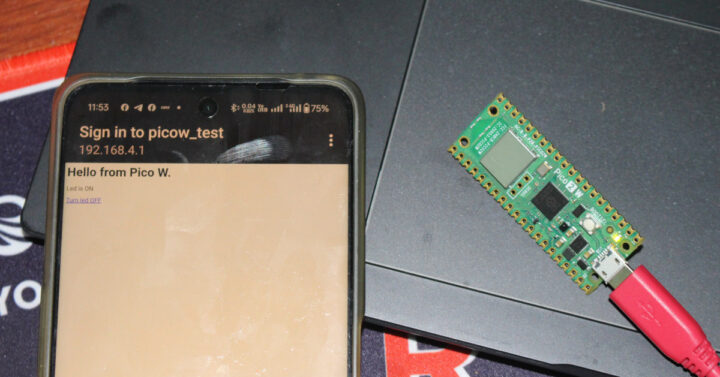Raspberry Pi Pico 2 W on sale now at $7
Today, our epic autumn of product launches continues with Raspberry Pi Pico 2 W, the wireless-enabled variant of this summer’s Pico 2. Built around our brand new RP2350 microcontroller, featuring the tried and tested wireless modem from the original Pico W, and priced at just $7, it’s the perfect centrepiece for your connected Internet of Things projects.

RP2350: the connoisseur’s microcontroller, redux
When we launched our debut microcontroller, RP2040, way back in 2021, we couldn’t have imagined the incredible range of products that would be built around it, or the uses that the community would put them to. Combining a symmetric pair of fast integer cores; a large, banked, on-chip memory; rich support for high-level languages; and our patented programmable I/O (PIO) subsystem, it quickly became the go-to device for enthusiasts and professional engineers seeking high-performance, deterministic interfacing at a low price point.

RP2350 builds on this legacy, offering faster cores, more memory, floating point support, on-chip OTP, optimised power consumption, and a rich security model built around Arm’s TrustZone for Cortex-M. It debuted in August on Pico 2, on the DEF CON 32 badge (designed by our friends at Entropic Engineering, with firmware and a gonzo sidewalk badge presentation by the redoubtable Dmitry Grinberg), and on a wide variety of development boards and other products from our early-access partners.
Wireless things
Many of the projects and products that people build on top of our platforms — whether that’s our Linux-capable Raspberry Pi computers, our microcontroller boards, or our silicon products — answer to the general description “Internet of Things”. They combine local compute, storage, and interfacing to the real world with connectivity back to the cloud.
Raspberry Pi Pico 2 W brings all the power of RP2350 to these IoT projects. The on-board CYW43439 modem from our friends at Infineon provides 2.4GHz 802.11n wireless LAN and Bluetooth 5.2 connectivity, and is supported by C and MicroPython libraries. Enthusiasts benefit from the breadboard-friendly Pico form factor, while our upcoming RM2 radio module (already in use on Pimoroni’s Pico Plus 2 W) provides a route to scale for professional products which have been prototyped on the platform.

More to come
We’re very pleased with how Pico 2 W has turned out. And, where the Pico 1 series ended with Pico W, we have a few more ideas in mind for the Pico 2 series. Keep an eye out for more news in early 2025.
The post Raspberry Pi Pico 2 W on sale now at $7 appeared first on Raspberry Pi.





